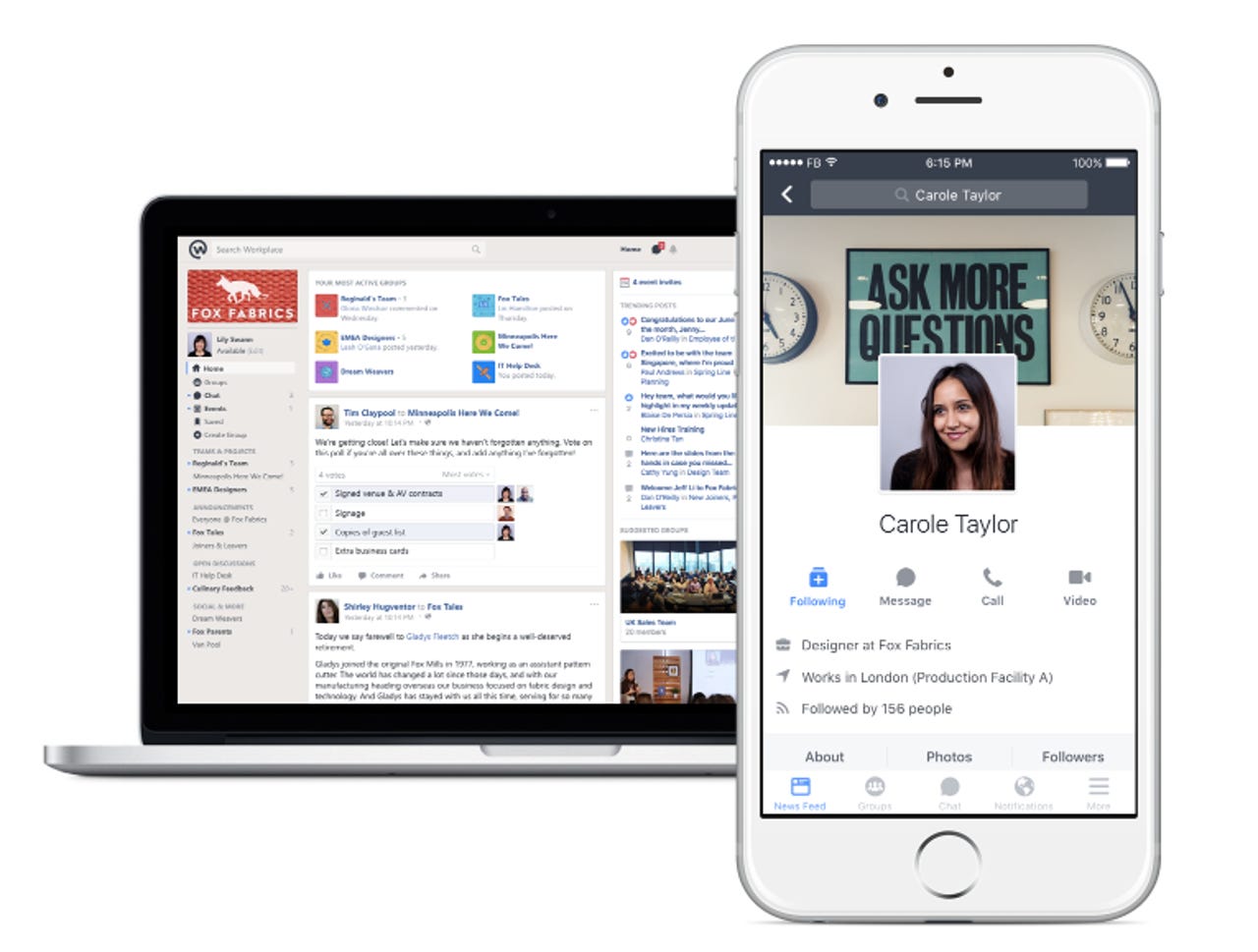Facebook debuts Workplace, social networking for enterprises


After years of development, the business-focused version of Facebook's ubiquitous social network is ready for its debut.
Featured
The Palo Alto, Calif.-based tech giant on Monday formally launched Workplace by Facebook, a communication platform that lets co-workers connect and share information while at the same time adhering to corporate policies and security standards.
The platform had been in pilot testing since January 2015, under the supposed name "Facebook at Work," with the Royal Bank of Scotland serving as one of the more prominent enterprises sampling the service.
Workplace is powered by the same algorithm as Facebook itself, but with a few extra bells and whistles catered to workplace chatter. The end result is a collaboration portal that crosses between Slack, Gmail, and Asana, letting employees access a personalized News Feed, share documents and photos, create groups and events, update work profiles, and send private messages to colleagues.
Workplace is completely separate from personal Facebook accounts, meaning information shared between employees is only accessible within the Workplace platform. Conversely, employers can not use a Workplace account to access information on an employee's private Facebook profile. Networks are isolated and only company-wide, which means only co-workers can see the information other employees post in Workplace.
On the security front, Workplace relies on Facebook's own infrastructure and tools like transport layer protocols and machine learning for threat detection to safeguard data. The social network says it also follows third-party industry standards such as those set by the Cloud Security Alliance. Here's a bit more info from the security and privacy section on the Workplace website:
Our unique position on the internet gives us visibility into the latest emerging threats, and provides us the ability to block attacks against your Workplace instance in real time. Additionally, Workplace has been designed to integrate into your company's existing identity management and access systems, giving you full control over access to your data, using open standards that are common to most enterprise software vendors.
Facebook says it will not use information shared in Workplace to target advertising on personal Facebook accounts.
Workplace, on the other hand, is ad-free and therefore relies on a unique pricing structure to generate revenue. According to the Workplace website, Facebook will charge a monthly fee based only on how many employees have used Workplace each month. And there's no long-term contract. Here's the specifics on the pricing model:
- $3 per user for companies with fewer than 1,000 monthly active users
- $2 per user for companies with 1,001 to 10,000 monthly active users
- $1 per user for companies with 10,000+ monthly active users
For comparison, Slack offers a basic free version of its team communications service, but its "standard" option costs $6.67 per user every month.
It's too early to tell whether Facebook will succeed in this new enterprise endeavor, but so far the signs point to a likely win for the social network. For one, employees prefer to use familiar interfaces, and Facebook has hundreds of millions of working-age adults who are well acquainted with its platform.
What's more, collaboration is something that every business needs, yet there's no single offering that's captured a majority of the market share. If Facebook plays it right, Workplace could fill a void in the market at a relatively low cost and still improve the company's bottom line.
Forrester analyst Craig Le Clair also points out the fact that millennials, which make up Facebook's core user base, will become the engine of the American workforce by 2020.
"Slack and others have seen viral adoption because they get this," Le Clair said. "Facebook believes that coming out of the consumer world, where these millennials honed their habits, is a market they can succeed in and capitalize on financially, and I agree."